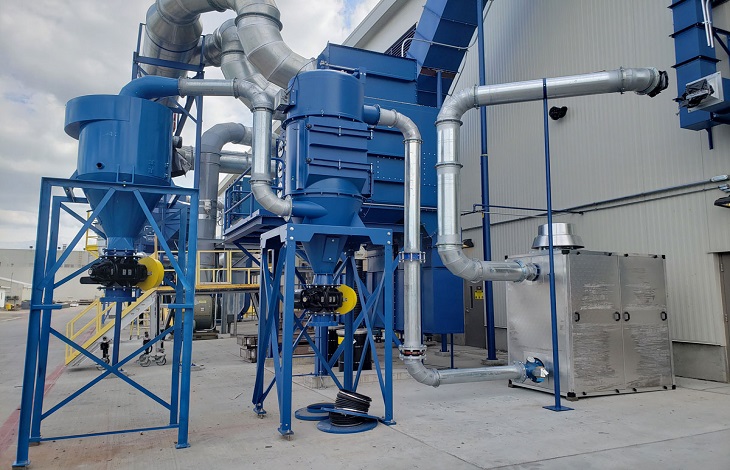Filtration is an ancient practice that forms the core process in many industries ranging from manufacturing to professing. At the industrial level, the filtration capacity needed to meet the processing demands is relatively high. Therefore, specialized machines are used to enhance efficiency.
The use of industrial filtration systems has numerous benefits. Here are a few
Protection of equipment
Some industries operate delicate equipment that runs within specific parameters. All components meet particular standards, and any deviation from the prescribed operation ranges can damage the equipment.
Therefore, filtration systems filter out any contaminants that can alter the chemical balance of the fluids running within the machine. Moreover, pollutants that can cause physical harm are also filtered out.
A good example is the industrial filters used on coolants that run in processing plants. The filtration systems remove solid contaminants that can damage the moving parts within the processing machines.
Liquid separators and particulate filters are also used to protect vacuum pumps in pharmaceutical plants.
Improve efficiency
Filtration systems improve the efficiency of industrial processes by minimizing downtime and enhancing the effectiveness of industrial processes.
Filtration of coolants maintains the chemical integrity of the fluid and ensures the capacity to absorb heat remains within the optimal range. As a result, cooling is done faster with minimal fluid consumption.
In the oil processing industry, filtration systems make industrial operation smooth by filtering the crude oil. Debris and sand get mixed with oil during extraction and make it challenging to mine. The use of perforated tubes during extraction separates the mixture saving time on the final processing.
Industrial filtration systems also process large volumes of solutions and mixtures. The high input and output capability ensure industrial processes runs without bottlenecks.
Product isolation
In some industries, filtration systems form part of the core industrial process. Filters are used to extract the final product.
The oil processing industry relies on different filtration systems to isolate the final chemical products. Both chemical filtration and physical filtration are used during the separation process.
Centrifugal separators are also used to purify the oil further. Oil filtration takes advantage of the varied densities of different oil products. The filtration systems are used to isolate oil during production, processing and recycling.
Safety
Industries that handle dangerous chemicals are keen on filtration systems since contamination may cause severe health and safety problems.
Some contaminants can react with industrial chemicals to cause spontaneous combustion. This leaves the industrial plants vulnerable to fires.
Other contaminants may react with industrial chemicals to release toxic gases that put the safety of the staff in danger.
Waste management
Industries often release waste products into the environment. However, the waste must meet specific chemical requirements to ensure no harm is done to the environment. Therefore, waste processing must be done before disposal.
Most of the waste products accrued from industrial processes undergo filtration to remove harmful components. Different filtration techniques are used to ensure all the toxins are removed.
After filtration, the chemical composition of wastewater is assessed thoroughly before release into farmlands and rivers. This guarantees the safety of users who recycle the water.
Industrial filtration techniques vary considerably. However, what remains constant is the importance of filtration systems in both the manufacturing and processing industries. Therefore, it’s essential to invest in a good filtration system to enjoy all the benefits.
Read Also:
Filtration Systems Used in The Food and Beverage Industry
